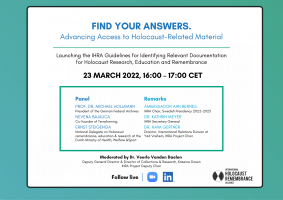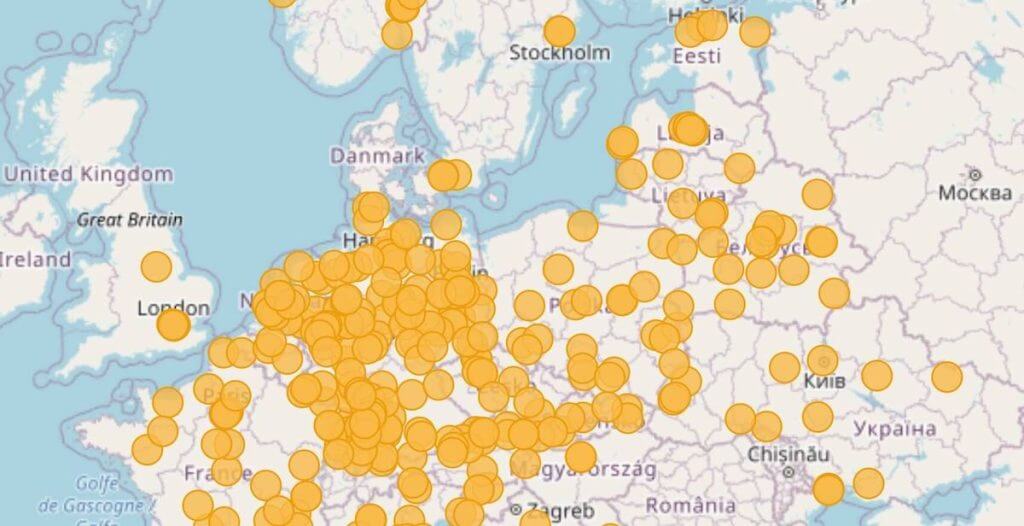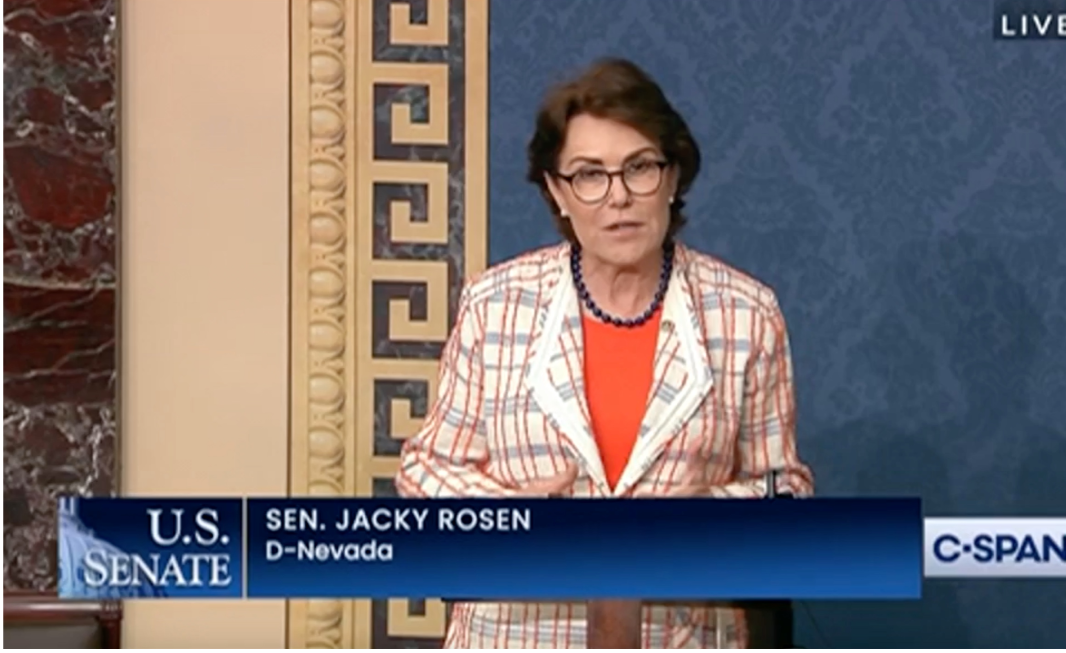
The Gandel Survey & the impact of Holocaust education and museums in Australia
This article is part of our series looking back at one year of implementation of the pledges made at the Malmö International Forum, Remember ReAct.
With antisemitism on the rise, the Australian government is supporting initiatives that advance Holocaust education and remembrance. Now a nationwide survey shows that this is a wise approach.
Australia has responded to increases in antisemitic incidents in the country – with 447 being registered in 2021 alone – with an unprecedented push to support Holocaust education and remembrance programs. The IHRA Member Country commemorated International Holocaust Remembrance Day with one ceremony across Australia for the first time in 2021 and is working towards establishing a Holocaust museum or educational center in each of its jurisdictions. The aim? To build a more compassionate society.
Earlier this year, the Gandel Holocaust Knowledge and Awareness in Australia Survey shined a spotlight on how much Australians know about the Holocaust and how aware they are of its impact. The survey, the first of its kind for the country, was one of Australia’s pledges at Remember – ReAct, the Malmö International Forum on Holocaust Remembrance and Combating Antisemitism, and has since helped guide policy and decision makers, providing them with crucial data on gaps in Australian adults’ Holocaust knowledge and awareness, and clear recommendations on how and why to fill them.
Gandel Survey findings are cause for optimism
Commissioned by the Gandel Foundation and undertaken by a team of researchers at Deakin University, including IHRA delegates Dr. Steven Cooke and Dr. Donna-Lee Frieze, the Gandel Survey asked over 3,500 Australians more than 70 questions, making it the largest survey of its kind ever undertaken.
Some of the survey’s key findings were alarming: Although Australians showed comparatively high levels of Holocaust knowledge, a quarter of the population had little or no knowledge of the Holocaust, with that number rising to 30% among Millennials. Likewise, over 70% knew nothing about Australia’s own connections to the Holocaust – despite Australia being home to one of the largest populations of Holocaust survivors per capita.
However, the Gandel Survey looked beyond Australians’ knowledge of the facts. A key objective of the survey was also to understand how aware Australians were of the catastrophe and its enduring impact, and the lessons it holds. This was considered to be “Holocaust awareness,” or acknowledging the true scale of the Holocaust and caring about Holocaust education.
“We know that it isn’t enough to know the facts. Caring about this history is just as important. Only then can we learn from the past,” Dr. Donna-Lee Frieze said. “We wanted to make sure the study captured not just what Australians knew, but what their attitudes were towards Holocaust education and whether they thought it was relevant for today.”
Researchers concluded that a large majority of the Australian population (83%) had medium to high levels of Holocaust awareness, with 88% believing that “we can learn lessons for today from what happened in the Holocaust” and two-thirds (66%) believing it should be compulsory for schools to teach about the Holocaust in schools.
Crucially, higher levels of Holocaust awareness were associated with warmer feelings towards Jewish people and other minorities, asylum seekers, and First Nations peoples, providing strong evidence for supporting initiatives that advance Holocaust awareness and knowledge. As Dr. Frieze put it, “Caring about the Holocaust means that you’re more likely to care about other issues as well.”
Addressing the gaps with museums and Holocaust education
The Gandel Survey’s findings pointed to two of the most effective ways of increasing Holocaust knowledge and awareness in Australia: specific education about the Holocaust in schools and visits to Holocaust museums.
Although only a quarter of the Australian population had visited a Holocaust museum or center, doing so meant that they were about 50% more likely to have excellent Holocaust knowledge.
“When people visited a museum or learned about the Holocaust in school they not only knew much more and cared much more,” Steven Cooke underlined, “but these experiences also shaped the way they viewed the world. The work ahead of us is understanding the relationship between education and potential changes in thinking and behaviors, as well as figuring out how to increase that number of people.”
With 79% of those who had learned about the Holocaust at school agreeing that these lessons had had a lasting impact on them, it is likely that current initiatives to strengthen these programs and institutions will have an effect well into the future.
Looking ahead: A roadmap for the future of Holocaust education in Australia
Researchers stressed that policymakers and leaders in civil society should see the Gandel Survey as the starting point for activity. They made eight recommendations based on their analysis of the findings:
- Include the Holocaust on the curricula of Australian states and territories, and support teachers with ongoing accredited professional development;
- Develop strategies to drive engagement with Holocaust museums, memorials and educational institutions;
- Research, create, and distribute specific resources to address gaps in Holocaust knowledge, especially the period 1933-1939, and as it relates to Australia;
- Develop a research agenda to understand the long-term impact of Holocaust education in schools and museums;
- Challenge antisemitic myths and stereotypes in education through support for education programs;
- Improve communication over the need for annual commemorative activities;
- Provide opportunities for students to engage with Australian Holocaust survivor testimony;
- Repeated cross-sectional research on Holocaust knowledge and awareness.
More information about the researchers’ recommendations and the Gandel Holocaust Knowledge and Awareness in Australia Survey’s findings can be found here.
Sign up to our newsletter to
receive the latest updates
By signing up to the IHRA newsletter, you agree to our Privacy Policy




